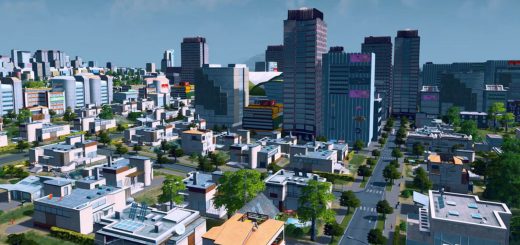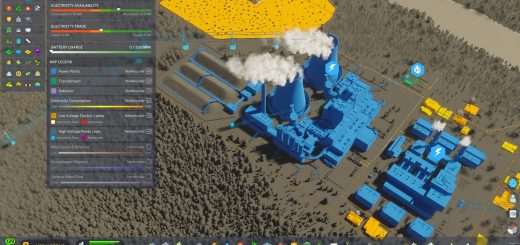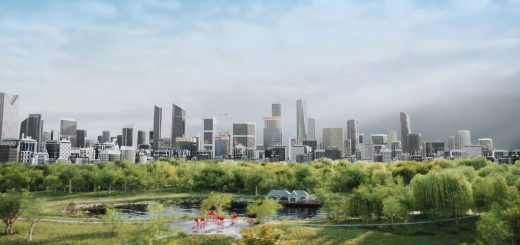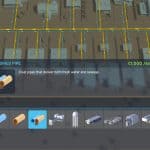
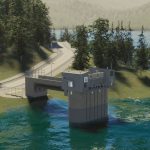
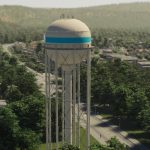
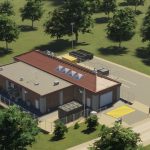
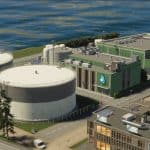
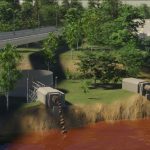
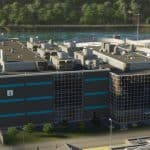
Cities Skylines 2: Water Production & Sewage
Clean water is indispensable for a city’s smooth operations, typically producing sewage equivalent to its water consumption. Buildings and citizens rely on water for essential tasks and livelihood. This water can be sourced from surface bodies or underground groundwater deposits.
Proper sewage management is paramount for the city’s wellbeing. Inadequate sewage systems can result in contaminated water clogging the pipelines, leading to apartment floods. Such oversights can make residents ill and also hamper the efficiency of businesses.

PIPES
Most road types incorporate water infrastructure, akin to electric cables, but pipes don’t have a specific capacity to monitor. Both water and sewage systems auto-connect to buildings constructed alongside roads. For structures without direct road access, distinct underground piping can be laid, either as individual channels for water or sewage, or as a dual pipe system combining both. The construction of pipes employs tools similar to those used for roads, and they can be swapped out for different types as necessary.

WATER PUMPING STATION
The Water Pumping Station is an essential facility designed to extract water from various surface areas, including lakes, rivers, and vast oceans. Situated strategically on the shoreline, this station ensures a steady and reliable flow of water for the city’s consumption. However, its efficiency can be influenced by the water levels of the source. If there’s a notable decline in these levels, the output from the station might get affected. As such, it’s crucial to monitor both the station and its source to ensure a consistent supply for the community. Proper placement and maintenance of the Water Pumping Station are pivotal for sustainable urban development.

WATER TOWER
The Water Tower stands as a versatile water source in urban planning, boasting the capability to be positioned virtually anywhere on the city map. This flexibility ensures that it can cater to areas where other water sources might be less feasible. Moreover, one of its notable advantages is its resilience against all forms of pollution, ensuring that the water it provides remains uncontaminated and safe for consumption. This makes it a particularly valuable asset in regions where environmental concerns might jeopardize the purity of water. However, this convenience comes at a price. The most significant drawback of the Water Tower is its high maintenance cost. When comparing its upkeep expenses to other water provision facilities, the Water Tower tends to be on the pricier side. Hence, while it offers certain unique benefits, city planners need to weigh its advantages against its ongoing costs to determine its suitability for their specific scenarios.

GROUNDWATER PUMPING STATION
Maps feature subterranean water sources, and the Groundwater Pumping Station is designed to tap into these reserves. For optimal functionality, it should be positioned directly over a groundwater deposit, facilitating the extraction of water to cater to the city’s needs. Groundwater presents a viable option, especially in terrains with scarce surface water. This becomes particularly advantageous in regions where managing sewage with limited surface water poses complexities.

ADVANCED WATER PUMPING STATION
The Advanced Water Pumping Station stands out due to its superior water output capabilities. While it shares similarities with the standard Water Pumping Station in terms of shoreline placement, it boasts a water extraction rate that’s ten times more efficient than its counterparts. This enhanced performance makes it an economically sound choice for metropolises with significant water demands.

SEWAGE OUTLET
The Sewage Outlet releases untreated wastewater straight into nearby surface water areas. Constructed along the shore and linked to the urban infrastructure via a sewage conduit, this facility lacks the capability to purify water. As a result, it discharges water that’s fully polluted, though certain upgrades can somewhat mitigate this contamination. Strategic placement of these outlets is vital to prevent the pollution of freshwater sources from which the city extracts its potable water.

WASTEWATER TREATMENT PLANT
The Wastewater Treatment Plant refines sewage, converting it back into potable water for the city’s use. It efficiently extracts contaminants from the water, transforming them into solid waste. This waste is subsequently picked up by garbage trucks and taken to the city’s designated waste disposal centers.


